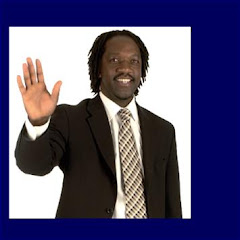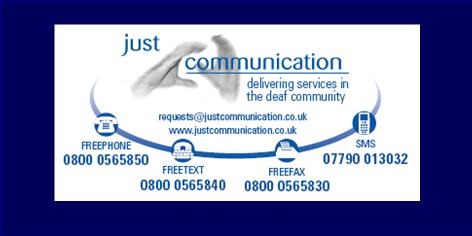Our previous feature focused on two young deaf women, Meghan and Sara, divided over the use of implants.
Readers touched by the issue share their perspectives:
I became profoundly deaf at the age of seven, in 1952. I wore a hearing aid through much of my life, but sounds and voices were still inaudible. My means of communication was lip reading. I never heard my children's voices.
I had a cochlear implant in 1996, I had no fear at all. My thoughts were just to hear again.
After the implant I can now hear my grandchildren. Isn't science great?
Suzanne Parkinson, Beverley, East Yorkshire
I am deafblind. While I was losing my hearing, I had been forced to wear hearing aids and various hearing devices. Even now, I have to wear a hearing device to hear.
It's nothing like hearing, because all it does is amplify how bad my ears process sound. Syllables sound too blurry to me. I would benefit from deafblind sign language, which is done at chest level so the deafblind can feel it so they can see it with their hands. But I have not found anyone that will teach it to me. They would rather force hearing devices on me.
I consider myself fine and normal as a deafblind person.
Why should I feel like an inconvenience to others?
Mina, Kelowna, Canada
I was not born deaf but became deafened after illness at nine to 10 years old. I have never been accepting of my hearing loss and I had a cochlear implant fitted at 15.
It's the best decision I was ever given the privilege to make. It totally transformed my life and helped me cope greatly with the sudden loss of hearing.
It's not for everyone but those who have it truly appreciate and value the sensation of sounds they now have access to. I wish Meghan all the very best with her rehabilitation and studies.
Dee, London
I became deaf 15 years ago and it was extremely traumatic for me. My identity as a hearing person was gone, and initially I just couldn't cope.
After 50 years of hearing culture, I found myself introduced into deaf culture. I spent two years learning to sign and lip-read and met some fantastic deaf people. I learned from them that each individual has to decide where they wish to be.
In the same way that they chose to stay with deaf culture, I chose to stay with hearing culture and now have a vibrant soundbridge implant that, although not a cochlear implant, works by activating the bones in the middle ear. I now enjoy around 90% of normal hearing.
By being "in the middle", I learned so many coping strategies from profoundly deaf people and owe them many thanks. A very personal choice that I would not have understood had I not met and discussed the issue with deaf people.
Ken Wardropper, Ilkley
I envy those who are strongly connected to the deaf community. With hearing parents and friends I never was able to explore that side of myself until university. I get hearing aid upgrades every now and then. It is still such a shock when you find a new sound. However, it makes me sad that I never heard it before.
By being an inbetweener of the deaf and hearing communities, I find myself working very hard to hear. I lip read and concentrate to keep up with hearing people. When I finally take the aids out it is very liberating that I can switch off, enjoy the silence and be deaf.
Flo, Maidstone
Meghan highlights the challenges of being deaf in her first month at university
I cannot help wondering what Sara is going to do with her life. The "Deaf World" she refers to presumably means people who use British Sign Language and is a small one.
Estimates vary but the figure normally quoted is 50,000 in the UK. It's not in any sense a world. How will Sara cope outside her family circle where she will meet very few other deaf people?
It's misleading, too, to subsume all people with hearing loss under one heading "deaf". It makes more sense to divide them into three groups - the hard of hearing who are very numerous and who get a lot of benefit from hearing aids; those who become profoundly deaf as adults, like myself; the group Sara belongs to, those deaf from birth.
These three groups have different needs but all have a good chance of participating in society as a whole helped by some marvellous technology like cochlear implants, some commonplace technology like TV subtitles, email, SMS texts and textphones and greater awareness of the nature of deafness in the general public.
John Newton, Preston, Lancs
If my daughter is anything like the intelligent, sassy, confident, happy teenagers in the documentary, then I will be one happy mum”End Quote Jenny Cassie
I could relate to many of the comments made in the programme. I belong to neither the deaf or hearing community as I have impaired hearing, I hate my hearing aids because I am just not used to hearing all these sounds. I exist in a sort of no-man's-land, belonging nowhere.
Brian Palmer, Birmingham, UK
I have three-year-old twins, born prematurely and consequently one daughter has a hearing loss. As a parent, you are so worried about what the future holds for your child yet this programme was so positive that I'm sure it gave hope to lots of parents in my situation. Good to see that this "invisible" disability is being discussed.
I finished the programme thinking that if my daughter is anything like the intelligent, sassy, confident, happy teenagers in the documentary, then I will be one happy mum!
Jenny Cassie, Ingatestone, UK
Cochlear implants
- A surgically implanted electronic device that can improve hearing by stimulating the auditory nerve
- Although an implant cannot restore hearing to normal it does give the sensation of sounds.
- Not suitable for all deaf people and those considering the surgery have to undertake in-depth hearing, speech and language, educational and psychological assessments
- About 500 adults, aged between 15 and 59, receive cochlear implants in the UK each year







No comments:
Post a Comment